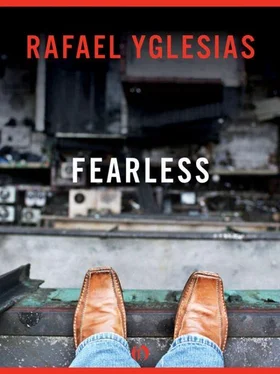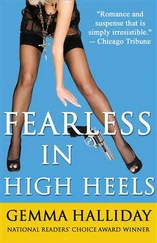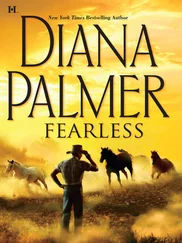Instead he talked. “Tomorrow I’m calling a lawyer and making an appointment. He’ll come here if you want. But you got to talk to him. This is a lot of money we’re talking about. And we can do good with it.”
Carla held her breath. She thought she was going to be angry, but she was tired of feeling apart from her husband and she let the crude words flush out of her head, catching hold of the last phrase. “What good?” she asked dreamily and was happy to feel sleepy again. She could make another journey away from misery.
“For later,” Manny said in a low harsh tone. “It can do a lot of good later.” He said “later” as if planning a revenge.
She was frightened by his ominous voice. “What — later?” She raised her head from his soothing chest. “What are you talking about?”
Manny pressed his chin against his chest to see her. That doubled his chin and puckered an old scar. “For Leonardo’s brother or sister. We could use the money for their education.”
Manny’s words made a weird hole in her memory. She fell in and searched for a brother or sister of Bubble’s. She was happy and anxious all of a sudden. Who were they?
“I always worried about Leo’s schooling…” Manny sighed heavily. His chest rose up and caught her head. “Something good has to come out of this,” he mumbled.
And the obvious shivered through her, a wave of nausea as she understood Manny meant children she didn’t have yet, children they would create all over again; with her body changing shape again; feeling the pain of birth again; fighting the grinding war of infancy again; again watching it grow day by day until — centuries from now — they would have another two-year-old who could be killed at any moment. It was insult. An ugly joke. That was why Manny didn’t cry over Bubble. He planned on getting a new son; like changing a bulb in his building’s hallway, indifferently replacing his dead son with a new baby.
“Get off,” she said glumly. She lifted her head and pushed at his billowing chest. “I want the bed to myself.”
“I didn’t mean right now!” Manny squealed.
“I need more room. Lying like this hurts my leg.”
“It shouldn’t hurt you anymore.”
How do you know what hurts?
“I asked Dr. Galletin,” Manny insisted. “He said it shouldn’t hurt anymore.”
“Well, guess what?” she answered with lugubrious scorn. “I got news for you and Dr. Galletin. It does hurt.”
Carla’s family ignored her fit of anger, just as they had ignored her during childhood, adolescence, and young adulthood. The next morning her mother and aunts were back, cooking, cleaning, gossiping.
Carla said nothing. She was so hopelessly angry at them there was nothing she wanted to say. All morning they came in and asked questions.
“Would you like breakfast? How about some cereal?”
“Manny called from work. He said you should go for a walk. How about it? Uncle Bill’ll come over. He was always your favorite. Remember, he’d carry you on his shoulders through the San Gennaro fair?”
She didn’t answer. Anyway, she didn’t remember. Her aunts had all these pretty memories that seemed to Carla had never occurred. She could recall only family quarrels and cooking and roomfuls of men slouched in easy chairs with their bellies distended, suppressing belches.
She couldn’t fight them anymore. All her life she had fought. Fought to dress the way she liked, fought to be friends with the kids she liked, fought to go out on dates, fought to move out of her mother’s house, fought to get married to a half-breed. Yes, in the beginning her relatives hadn’t wanted her to be in love with Manny, a bastard and almost a nigger, as one of the uncles that Carla supposedly doted on had said. Now Manny was simmering in their pot, mixed in with their spicy glop.
She said nothing. Her mouth was heavy. Even to sigh would require that she part her lips, and they were thick and stuck together.
“She’s not talking to us,” her mother commented to Aunt Mary by lunchtime. “Let’s put some food in front of her. She’ll eat it.”
Carla’s great-grandmother had killed herself by staying in bed and refusing to eat. Carla didn’t remember the passive suicide herself, except for a dim and fading snapshot of a memory: a dark room, dusty light streaming through wide blinds, and a tiny ancient woman lying still in a big bed. Carla knew the story as family legend. Mama Sofia had decided to die when she broke her hip. She refused to get up and use her walker. She refused to eat anything. She only sipped water from time to time. She wasted away for three weeks, caught pneumonia and died.
The story used to terrify Carla. Now she thought it was beautiful and comforting.
She lay in bed and said nothing. They put food in front of her and she watched it gel. She turned off the television and the air conditioner and returned to bed. She felt sweat grow out of her skin and drip down into the sheets. She hoped the heat would make germs breed faster in her lungs.
She looked at the mahogany dresser inherited from her grandmother, dark and sulking in the corner. Her eyes skied down the curling sweep of her green drapes, noticing dirt and stains she hadn’t before but that now seemed glaring. These were going to be the last things she would see in life. The television, the screen gray and hostile, stood at the foot of the bed like an overheated, sleepy dog. There was a scratch on its wood paneling, a gash caused by the yuppie who had thrown it out believing the set was broken. In fact, it required only an eighty-nine-cent fuse that Manny promptly bought and installed. He gloated about the ignorance of the rich college graduate. For months Manny dragged friends home to show them the set and tell the story. “He throws it into the garbage room. I tell him, ‘Don’t you want to have a repairman look at it? Maybe it can be fixed?’ He says, ‘No, I know about these things. Once they’re broken, costs as much to fix them as it does to buy a new one. And they’re never right again.’ ” Manny would then turn it on and gesture, laughing with his dark mouth, at the television’s perfect image.
Beyond the television, on the wall, there was a painting she had bought as a young unmarried working girl during a walk through the Washington Square Art Show years ago, before she had met Manny. A funny old man had a stall on the corner of Tenth and University Place jammed with pictures he had made of the neighborhood. The one Carla bought was a painting of the outside of the Grand Tichino restaurant on a lively summer evening, the street busy with tourists going by. What she liked about it was the old lady leaning on the windowsill in the tenement above the restaurant. The old woman didn’t look anything like her grandmother but it reminded Carla of her anyway. Since her grandma had died only a few months before, she bought the painting, although it cost fifty dollars, a huge sum to her then. She hadn’t looked closely at the painting for years. Since the crash, with the television always on, she had given it no more than a glance. She was interested in it now because of the association with her grandmother. Her mind wanted to go back to people who had died, people she was used to forgetting.
In the dark hot room she studied the painting. It was the only thing in the apartment that she had really bought and picked out all by herself. Everything else was handed down or salvaged by Manny.
She decided she didn’t like it anymore. The colors looked too bright; and the old woman was leaning out too far forward from the window. She seemed eager to see what was happening below. Carla’s grandma used to lean on the window ledge as if she never planned to move from that spot. She wasn’t curious about what was below, although she looked down. She had stopped there to rest, to be away from the complaints and duties inside, to be — Carla understood suddenly — alone. The ledge was as alone as she could be.
Читать дальше












